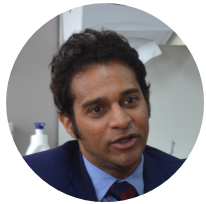The ongoing Covid-19 pandemic caused by the novel severe acute respiratory syndrome coronavirus 2 (SARS-CoV-2) has caused an upheaval in the global health landscape.
It is highly infectious with rapid human-to-human transmission compounded by the fact that the majority of carriers are the “walking well” and may spread the disease unknowingly. In Malaysia, 80% of COVID-19 patients are asymptomatic or have only mild symptoms.
This virus is transmitted via droplets and predominantly affects our respiratory system (airways and lungs). According to a study coming out of Wuhan, cancer patients suffer a 2.3x increased risk of being infected by SARS-CoV-2. Additionally, lung cancer patients seem to be over-represented in the numbers.
Cancer Patients Are More Susceptible To Covid-19
Emerging evidence (1) from Wuhan, China the original epicenter of this viral pandemic in December 2019, suggests that cancer patients in general and possibly lung cancer patients in particular may have an elevated risk of contracting Covid-19.
Researchers determined the infection rate was 0.79% (95% CI, 0.3-1.2) in cancer patients which was more than double the estimated 0.37% cumulative incidence in Wuhan over the same period leading to an odds ratio of 2.31. Lung cancer patients formed the largest group in this cohort.
Understandably, cancer patients may be immunocompromised due to the underlying malignancy or anti-cancer therapy and are known to be at higher risk of developing infections in general. Additionally, these patients commonly require repeat hospital visits which increase their risk of exposure.
Amongst cancer patients who do contract Covid-19, the mortality rate appears alarmingly high. For example, the WHO-China Joint Mission on Covid-19 (2) reported a case fatality amongst cancer patients of 7.6% compared to those without co-morbidities at 1.4%, more than five times higher. Similarly, data collected by the Italian National Institute of Health (2), showed that out of 355 patients who died, a whopping 20% were cancer patients.
Covid-19 Testing
In Malaysia, Covid-19 is diagnosed by PCR of a nasopharyngeal and oropharyngeal swab sample. However, experience from Beijing (3) showed that this method may produce a false negative result in over 30% of patients.
Therefore, a thorough contact and travel history remains very pertinent and cultivating a trusted patient-doctor relationship is vital for honest interaction. Although not currently approved in Malaysia, other countries have been quick to adopt antibody or serology testing as adjuncts to PCR testing and these are convenient, fast (approximately 10 minutes) and relatively much cheaper.
However specifically for cancer patients, their immunoglobulin response may be attenuated due to concurrent immunosuppression which is something to bear in mind.
Outpatient and Inpatient Services
Adequate screening and triaging should be done at the point of entry to all cancer units. Cancer patients frequently require admission for symptom control or medical conditions related to either the therapy or the cancer itself. Ideally there should be universal Covid-19 testing or at least a much lower threshold to screen compared to the general population.
Outpatient clinic consultations which can be safely rescheduled should be postponed during this period. The use of telemedicine facilities may be an attractive emerging option. However, a medico-legal framework and clarification of the TeleMedicine Act 1997 is a prerequisite for more widespread adoption.
For unavoidable appointments, the principle of social distancing must be maintained, where hospitals need to ensure appropriately distanced seating, regular disinfection of high-touch surfaces and avoid overcrowding. Some hospitals have instituted universal mask wearing for which there is increasing evidence.
Surgery For Cancer Patients
In many hospitals, non-urgent elective procedures and surgical operations have been postponed to reduce the risk of hospital-acquired transmission and infection, to protect clinical staff and optimise the use of limited facilities, including intensive care unit (ICU) beds, ventilators and conserve scarce blood transfusion products.
However, early stage cancers are potentially curable with surgery. Any delay in treatment may allow the cancer to spread uncontrollably beyond cure, with a resulting worse prognosis and survival for the patient.
Most cancer surgery would be categorised as semi-urgent or emergent cases and should be performed within a stipulated time (4,5). Such procedures should still proceed with appropriate safety precautions once a patient’s Covid-19 status is confirmed negative and the necessary resources are available.
Despite a negative test, if clinical suspicion remains high, surgery should be delayed and a precautionary computed tomogram (CT) scan of the thorax (lungs) should be conducted to rule out Covid-19 lung infection.
Surgery without prior testing is unacceptable and reckless as both the patient and health care workers are subjected to unnecessary risk. Preliminary data from Wuhan of 34 untested asymptomatic patients who inadvertently had elective operations under general anaesthesia during the incubation period of Covid-19 infection showed unacceptably high peri-operative mortality (20.5%) and poor outcomes with all patients developing a pneumonia and almost half requiring ICU care (6).
Chemotherapy And Radiotherapy
The benefits of any particular treatment need to be weighed carefully with its potential immunosuppressive effects in light of Covid-19. For advanced stage cancer patients with multiple co-morbidities, the elderly, or where treatment is palliative in nature with marginal benefit and the risk of transmission is high, the pendulum may swing towards non-therapy.
Moreover, certain treatments can be modified to reduce hospital visits such as giving 3-weekly chemotherapy as opposed to weekly treatments. A few cautious units have instituted routine Covid-19 screening prior to chemotherapy, but most continue to rely on clinical judgement. However, some asymptomatic or mildly symptomatic patients may prove elusive.
Shortened radiotherapy regimes which are equally as efficacious can also be used such as 15 sessions for adjuvant breast treatment as opposed to 25 sessions. Another strategy is to utilise more frequently techniques such as stereotactic body radiotherapy (SBRT), which can compress a traditional 3 to 6 weeks of therapy into 1 week but with even better outcomes.
Organisation Of Medical Services
Health care workers (HCW) and other frontline non-clinical staff carry an elevated risk of contracting Covid-19 presumably due to a higher viral load from cumulative or repetitive exposure.
In Malaysia thus far, no Covid-19 deaths of Ministry of Health (MOH) staff has been officially attributed to their work exposure, however Covid-19 deaths of HCW are sadly becoming increasingly prevalent elsewhere.
Hospitals should consider organising their clinical staff into functional ‘teams’ so that in the event a member of one team is Covid positive, the remaining team members can be appropriately isolated without service disruption.
As independent contractors, doctors in private practice have traditionally functioned as individuals, but a quick paradigm shift away from this silo mentality may be needed to facilitate a safer team approach.
Finally, hospital managers, administrators and health regulators have a duty of care to ensure all their frontline clinical staff are provided with appropriate personal protective equipment (PPE) and be educated properly on how to safely don (put on) and doff (remove) such apparatus.
Role Of The Public
At a time of great pressure on government facilities and resources, a public-private partnership can operate to decant public patients to private hospitals with no extra cost to the patient.
Hopefully once this dreadful epidemic has ended, it will provide the necessary impetus for developing a more efficient integrated health care system underpinned by better collaboration with all stakeholders. A truly meaningful public-private partnership will be more cost-effective and beneficial to all Malaysians.
For now, those who are already insured or financially able, should perhaps access private health care and thereby help alleviate the caseload burden in the public sector hospitals. People also need to be more socially responsible.
Simply phoning in advance to cancel a planned hospital appointment will create a clinic or treatment slot for another needy patient. Similarly, there must not be wastage of medications just because it is given at minimal cost or free of charge.
Patients and their caregivers should be truthful regarding their symptoms or contact and travel history. To do otherwise puts the safety of HCW and their own families in jeopardy. Fastidious hand washing (for at least 20 seconds) with soap and water is simple, cheap and effective in breaking the chain of viral transmission. The value of wearing a mask even if asymptomatic is gaining acceptance.
A recent study from Hong Kong (7) suggests the possibility of viral aerosolisation and transmission simply by talking and quiet breathing in addition to droplet transmission from coughing and sneezing. This study demonstrated that use of face masks was efficacious in reducing viral transmission.
The USA Centre for Disease Control (CDC) has reversed its original decision and now advises use of a simple face cloth covering as a voluntary public health measure, in line with Asian countries such as Singapore, Japan, and China which encourage mask wearing when heading out of the house.
Finally, the current ‘stay at home’ mantra cannot be overstated and everyone should dutifully observe the Movement Control Order (MCO). This is our collective social distancing effort to help flatten that curve and help each other.
The sensible relaxation of the 10-km travel restriction rule to seek appropriate health care must not be abused. Now is not the time for trivial queries and routine health screening checks. Patients should only visit hospitals and seek consultation or treatment when truly necessary.
Movement Control Order (MCO)
Population-wide social distancing measures such as our nationwide MCO and more strategic enhanced MCO (ie. lockdowns), quarantine of returning Malaysians from overseas, meticulous contact tracing and cluster testing of high-risk groups are tedious but essential to help flatten the viral epidemic curve.
These mitigation measures will hopefully prevent any sudden precipitous rise in severe Covid-19 cases that could easily overwhelm our intensive care and ventilatory facilities. This will also buy precious time for development and delivery of an effective vaccine or anti-viral drug and perhaps for a sizeable population to develop a degree of natural ‘herd immunity’.
How protective prior exposure and infection is towards preventing future re-infection remains unknown. We should remain vigilant as it remains unknown if the SARS-CoV-2 coronavirus has the potential to mutate to a more virulent strain. In truth we will all need to change our lifestyle and work practices for the foreseeable months or years ahead.
References
- JAMA Oncol. Published online March 25, 2020. doi:10.1001/jamaoncol.2020.0980. SARS-CoV-2 Transmission in Patients With Cancer at a Tertiary Care Hospital in Wuhan, China.
- The Oncologist 2020;25:1–10. A Practical Approach to the Management of Cancer Patients During the Novel Coronavirus Disease 2019 (COVID-19) Pandemic: An International Collaborative Group
- JAMA. Published online March 11, 2020. doi:10.1001/jama.2020.3786 Detection of SARS-CoV-2 in Different Types of Clinical Specimens.
- Malaysian Society of Anaesthesiologists (MSA) & College of Anaesthesiologists, Academy of Medicine of Malaysia (CoA-AMM) Guidelines for the Management of Patients Presenting for Surgery During the COVID-19 Pandemic -issued 6 April 2020
- American College of Surgeons COVID-19: Elective Case Triage Guidelines for Surgical Care (Thoracic Cancer Surgery) – issued 24 March 2020
- S.Lei et al. Clinical characteristics and outcomes of patients undergoing surgeries during the incubation period of COVID-19 infection. EClinical Medicine (2020) [link] (in press)
- Nat Med (2020). [link] Respiratory virus shedding in exhaled breath and efficacy of face masks.


Cardiothoracic surgeon Dr Anand Sachithanandan and clinical oncologist Dr Tho Lye Mun are co-founders of Lung Cancer Network Malaysia (LCNM).
- This is the personal opinion of the writer or publication and does not necessarily represent the views of CodeBlue.








